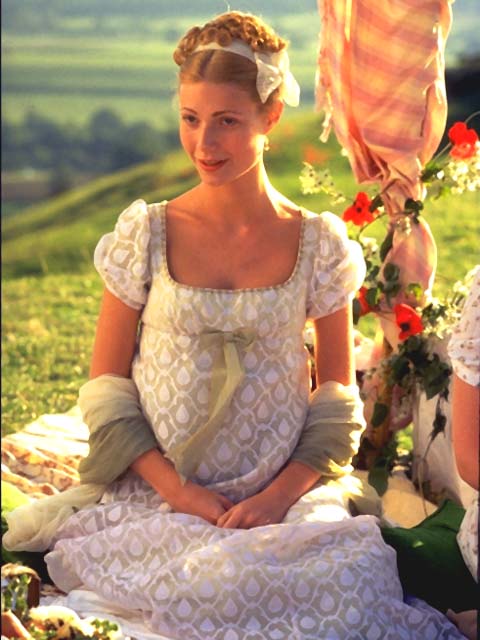 |
| Gwyneth Paltrow as Emma in 1996 |
 |
| Alicia Silverstone as Cher in 1995 |
The same thing can be said, I believe, for Joss Whedon's 2012 adaptation of Much Ado About Nothing. Though I can't exactly say this version is radical, as the dialogue remains faithful to the original text, it definitely creates an unorthodox modern lens for us to view Shakespeare through. As I mentioned, the actors in the film speak using the play's original dialogue, however, the film takes place in modern times with modern dress. The situations acted out are also updated, so a current audience might better understand and relate to them. Honestly, I was surprised at how well the original dialogue lent itself to modern situations. These situations allowed Shakespeare's original intentions to be conveyed more realistically for 2012, but it was still Shakespeare. Whedon's strange blend of old and new was able to bridge the gap between classic literature, which often equals "boring" films only dedicated nerds and English majors love, and modern/popular films, which reach a wider audience.
Both Emma and Much Ado About Nothing have been adapted in less traditional ways and found success. They seem to have been given more freedom play with the source text and create something different. If a director were to do that today, with a popular novel, they would probably be met with skepticism and unhappy fans. Why do you think classic literature can get away with more than popular literature? It is a positive thing? I believe it is positive, especially when looking at these two examples. They both create wonderful equivalence of meaning with their respective source texts, and they help to reach a larger, more diverse population. This opens the door to increased dialogue about the original work, and I can only see that as positive. As for why they have that freedom, I'm not sure. Maybe it is just a matter of time, and their "biggest fans" have come and gone, as will the fans of our popular fiction today.